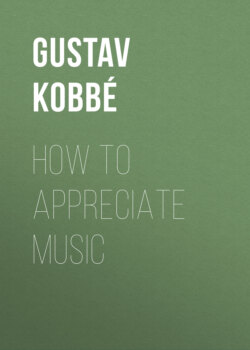Читать книгу How to Appreciate Music - Gustav Kobbé - Страница 26
На сайте Литреса книга снята с продажи.
That “Ear for Music.”
ОглавлениеAnd while I am on the subject of the scientific musician versus the music lover, the pedant versus the innovator, I might as well refer to those people who have in a remarkable degree what is popularly known as “an ear for music,” and who are able to remember and to play “by ear” anything they hear played or sung, even if it is for the first time. This ear for music, again, is something quite different from scientific knowledge of music or from the emotional sensitiveness which makes the music-lover. It is a purely physical endowment, and may—in fact, usually does—exist without a corresponding degree of real feeling for music. It is, of course, a highly valuable adjunct to a genuine musical genius like a Mozart or a Schubert and to a genuine virtuoso. It is related of Von Bülow that his ear for music and his memory were so prodigious that once, while traveling in the cars, he read over the 64 printed pages of a new composition, and on arriving at his destination, played it, from memory, at his concert. William Mason, who studied with Liszt, witnessed his master perform a similar feat. The average untrained person with a musical ear, however, instead of being a genius, is apt to become a nuisance, playing all kinds of cheap music in and out of season—a sort of peripatetic pianola, without the advantage of being under control. Such persons, moreover, usually are born without a soft pedal.
